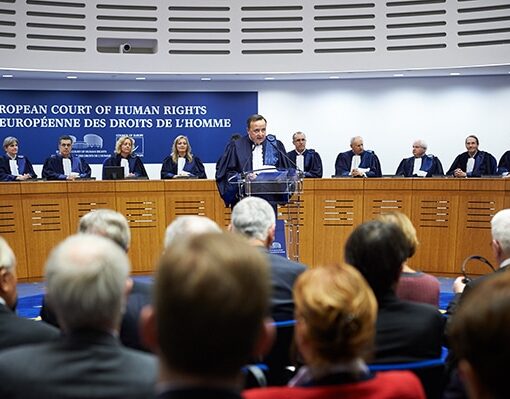
On January 9, 2023, the Foreign Ministers of Chile and Colombia requested an advisory opinion from the Inter-American Court of Human Rights (IACtHR) on the scope of state obligations for responding to the climate emergency under the frame of international human rights law and, specifically, under the American Convention on Human Rights. The request follows two parallel processes to request advisory opinions at the International Tribunal on the Law for the Seas and the International Court of Justice. Both requests aim at clarifying the obligations of states with respect to the climate crisis. This blog post focuses on the content and process related to the request for an advisory opinion at the IACtHR. In particular, it relays how the request builds on a previous Advisory Opinion (OC-23/17), in which the IACtHR recognized the justiciable right to a healthy environment.
The Role of Advisory Opinions in the Inter-American Human Rights System
The IACtHR is a regional human rights tribunal established under the 1969 American Convention on Human Rights (Convention). Pursuant to article 62.3, the IACtHR has jurisdiction over matters related to the interpretation or application of the Convention. It has both a contentious and an advisory function. The IACtHR’s advisory function relates to interpreting treaties adopted within the framework, or under the auspices, of the Inter-American system (such as the 1988 San Salvador Protocol) and other treaties concerning the protection of human rights in the American States.
Article 64.1 of the Convention allows the Member States to request an advisory opinion from the IACtHR for the interpretation of the Convention or other treaties related to the protection of human rights. Article 70 of the Rules of Procedure (RoP) of the Court dictates that any Member State or the Inter-American Commission on Human Rights (Commission) that request an advisory opinion shall identify, among other things (i) the provisions that need to be interpreted and (ii) the considerations giving rise to the request.
The IACtHR has interpreted this function broadly. In an advisory opinion issued in 1982 (OC-1/82), the IACtHR found that its advisory role applies to “any provision dealing with the protection of human rights set forth in any international treaty applicable in the American States, regardless of whether it be bilateral or multilateral, whatever be the principal purpose of such a treaty, and whether or not non-Member States of the inter-American system are or have the right to become parties thereto.” This expanded interpretation may open the door to the IACtHR considering not only on the American Convention and related framework in answering the 2023 request but also other international agreements. The 2023 request for an advisory opinion specifically calls on the IACtHR to identify measures to be adopted under the Escazú Agreement for States to protect the rights to life, property, health, and participation in the context of the climate emergency. The IACtHR could also, conceivably, discuss other international agreements such as the United Nations Framework Convention on Climate Change and Paris Agreement in its advisory opinion.
The Advisory Opinion OC-23/17’s Influence on Current Debates on Climate Change and Human Rights and the 2023 Advisory Opinion Request
As stated in the latest advisory opinion request, the IACtHR has previously acknowledged the inextricable link between protection of the environment and the enjoyment of human rights. In its 2017 Advisory Opinion on “the Environment and Human Rights” (OC-23/17) the IACtHR explicitly recognized, for the first time, the autonomous human right to a healthy environment in the context of the Inter-American Human Rights System. Arguably, the 2017 Advisory Opinion opened the door for rights-based climate litigation through the recognition of States’ responsibilities for transboundary harms (including climate change-related harms) and the precautionary principle. (For a full discussion of the potential of such litigation, see Tigre & Urzola, The 2017 Inter-American Court’s Advisory Opinion: changing the paradigm for international environmental law in the Anthropocene, 2021.)
Notably, the IACtHR broadened the interpretation of extraterritorial jurisdiction in the 2017 Advisory Opinion to accept a link based on the factual nexus between a conduct in the territorial boundaries of the State and a human rights violation abroad. The IACtHR stated that jurisdiction could be established over human rights violations that take place outside the territory of a State if that State exercises effective control over damaging activities that cause the violation and thus could prevent the consequent harm (OC-23/17, paras. 102-104). This jurisdictional link is considered to be broader than any nexus previously recognized by a human rights court and reflects the responsibility of a State based on its failure to exercise due diligence within its territory in the context of human rights violations (Berkes, 2020).
Chile and Colombia’s advisory opinion request builds on the reasoning in Advisory Opinion OC-23/17 to argue that there is a need to establish Inter-American standards to accelerate the region’s response to the climate crisis. The request places significant attention on the benefits of human rights’ obligations as in advancing just, equitable and sustainable responses to climate change. As a result, the request underscores how the Advisory Opinion OC-23/17 was crucial in deepening the regional understanding of the interdependence of human rights and the environment, and its effect in policy making.
Content of Chile and Colombia’s Request
Chile and Colombia are asking the IACtHR to provide more clarity about the grounds and scope of human rights affected by the climate emergency. Specifically, it encompasses a wide range of legal issues related to climate mitigation, adaptation, and loss and damage. The request to clarify these obligations relates to the role of common but differentiated responsibilities (‘CBDR’) and cooperation between states. Furthermore, it asks for clarification on the scope of the obligations as they relate to vulnerable groups, including children, women, indigenous groups, future generations, and environmental defenders. The request explicitly mentions the need to consider the diversity of present generations, the differentiated geographic impacts and the rights of future generations derived from international human rights law.
The request seeks guidance on States’ obligations to address climate change’s root causes and consequences, both individually and collectively, and specifically relate to five topics.
- The applicants asked about the individual and collective state obligations, based on the CBDR principle, to prevent and guarantee human rights by confronting climate emergencies based on the Paris Agreement and the scientific consensus not to exceed1.5oC of global warming. Specifically, the request refers to regulation, monitoring, environmental impact assessment, contingency planning and mitigation of activities that can worsen the climate emergency.
- The request asked about state’s substantive and procedural obligations to preserve the right to life and other correlated rights – such as the right to life, property, health and participation – in light of the climate emergency.
- The applicants asked the IACtHR to clarify the differentiated obligations of states to protect the rights of children and future generations. In particular, it asks the Court to define children’s rights of access to justice in climate-related cases.
- Chile and Colombia asked the IACtHR to clarify the nature of state obligations to provide judicial actions for adequate protection and reparation of the rights affected by the climate emergency.
- The applicants focused on environmental defenders’ protection, referring to the American Convention and the Escazú Agreement. Here, the applicants asked about state obligations for protecting environmental defenders, especially indigenous people and women.
- Colombia and Chile further asked the IACtHR about the obligation of states to cooperate to confront climate change in the region, especially to clarify the shared and differentiated obligations amongst the region’s nations. Here, the questions highlight the need for guidelines to clarify states’ role in guaranteeing reparation measures by considering equity and climate justice principles. In addition, the applicants inquired about the scope of obligations to confront climate migration in the region.
Next Steps
The IACtHR has already issued 30 advisory opinions. It has only ever rejected five requests. When it rejects a request, the IACtHR must explain why it will not answer the request, and justify its reasoning based on the limits of the Convention as it pertains to the Court’s competency – and why it is not related to human rights. After an advisory opinion is submitted, the Secretary of the Court shall notify and transmit copies to all of the State Members, the Permanent Council, the Commission, the Secretary-General and any other organ of the Organization of the American States (OAS) related to the topic of the advisory opinion. The Presidency of the Court then sets a deadline for filing written observations by States Members or other interested parties (usually six months after the request for an advisory opinion has been filed). Since this request does not seek an opinion regarding the compatibilities of any domestic law with the Convention or any other related international treaties, the Presidency may invite or authorize interested Parties to submit a written opinion. Article 44 of the Convention allows any institution or person to submit an amicus brief. The Presidency then decides to convene a public hearing that usually takes place six months after the deadline for the submission of written opinions. Finally, the Court usually issues the advisory opinion around one year after the hearings. While advisory opinions are not generally binding, the IACtHR has previously noted that national judiciaries that have ratified the Convention must consider the interpretation made by the IACtHR, deeming an opinion from the IACtHR on climate change extremely influential for global climate litigation (Almonacid-Arellano et. al. v. Chile, ¶124; OC-24/17, ¶26).







